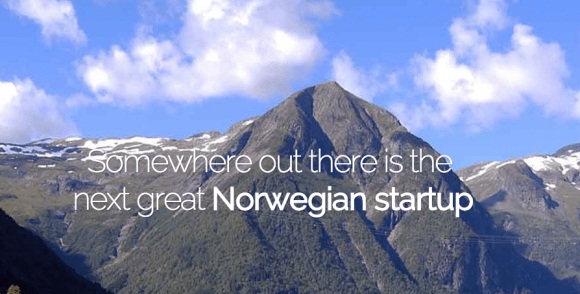
“Venture capital in Norway is dead,” is how Brain Weisberg of betaFUND the new Norwegian seed fund, started by the founders of Trolltech and Kelkoo, starts off our call. “Despite an obsession with disrupting other industries, VC’s haven’t changed their own business model since before the dot-com boom of the 90s. And their poor investment performance and lack of support of modern entrepreneurs are two symptoms of a larger problem.”
Weisberg points to few big problems with the investment scene in Norway. For instance, the average initial investment in a company is around 10 mNOK (€1.23 million) which is a pretty high average, no matter if a beer in an Oslo pub will set you back €10. Additionally there isn’t a lot of smart money. If you were to run profiles on the average VC in Norway, most would come from the financial or government support scene, not the technical or startup scene, which somewhat limits their creativity, or mentoring opportunities.
As a result, Weisberg can quote crazy sounding facts, such as since 2010, no Norwegian investor invested in a Norwegian company’s seed round according to the Norwegian Venture Capital Association. The NVCA’s data is spotty, and there is no data out for 2013, but realistically if there were a perfectly active ecosystem there should be a number of blindingly obvious seed rounds to include in their data.
What’s missing in Norway is something betaFUND envisions – a fund to provide smaller, smarter rounds of funding to test out ideas, and then keep supporting the ones that make it. Additionally, behind it should be people who have made it in the startup industry, who can share their knowledge.
Weisberg himself has been covered in ArcticStartup in the past, by opening up betaFACTORY, Oslo’s startup accelerator. But fleshing out the rest of the core betaFUND team are a few names you might recognize, such as Haavard Nord, the founder and CEO of Trolltech, which in 2008 was sold to Nokia for $153 million. Additionally William Klippgen, the founder of ZoomIt/Kelkoo, which sold to Yahoo! for $640 million is part of the management team, as well as Pål Rødseth, of Ferd Venture Capital.
This team, especially with Nord and Klippgen, will likely be a good hand to their investments due to their backgrounds and networks. Nord has spent many years after Trolltech in the Bay Area, where he has been an active startup investor an mentor. And looking east, Klippgen has been spending two weeks out of every month in Singapore since 2009, where he has been active as a business angel. “Companies out of the betaFUND will probably not have all their activities in Norway. You’ll have to go to the US and Asia very fast,” says Klippgen.
The management team is also pulling on their networks to get Norway’s successful business leaders to start participating with mentoring startup entrepreneurship, and then perhaps later participating as an angel or board member of these companies.
The fund
If you could compare the betaFACTORY program TechStars, the betaFUND program is more like 500startups. The model BetaFund is proposing is a 500 mNOK (€61 million) fund made of half private capital, and half through a new public money, as part of a new Norwegian government sponsored program to increase the number of seed rounds.
With their funding in place, betaFUND plans to put 10% of the money into high risk, high reward fund for about 50 to 100 micro seed investments. The next 30% would be used more for traditional seed investments of a couple hundred thousand euros. And then the remaining 60% would be used for follow-on investments, with a preference on companies that are making money, and not wasting good money into sunk costs.
We want to be more data driven,” says Weisberg. “Most VC firms in Norway have failed to return capital, but what we’re saying is that instead of huge winners, we want educated bets. We’re playing blackjack, not roulette; smaller, more educated bets.”
Haavard Nord, founder of Trolltech says, “We do want to do a lot of small investments, but we need to be sure we can validate these ideas. We see how this works in the bay area and elsewhere, like with 500 Startups or Ycombinator. We have a way to identify and invest in startups, and we want them to fail early instead of failing late instead of spending money.”
By getting Norwegian government support they’ll be somewhat tied down to investing in Norway, where they may encounter a chicken and egg problem. For example, at ArcticStartup have wondered if we’re just not connected in Norway, or if there just isn’t a lot to cover.
Despite that, at betaFACTORY Weisberg says they’re not concerned with dealflow, especially with their outreach and branding though betaFACTORY “Teams have wanted to go to betaFACTORY, but couldn’t quit their jobs. If we can walk around with a much larger fund, then we can sway them to start something,” says Weisberg.
The gold mine they’re searching for is more startups like Xeneta, where a few, very well paid Norwegian shipping consultants decided to take the leap to start a new business, later picking up €1.2 million in financing from Creandum.
We’ve written for some time that the pieces seem to be falling into place in Norway, with the help of the MESH coworking space in downtown Oslo, Norway’s first proper startup accelerator, and now this fund with the goal of drastically changing Norway’s stagnant seed funding.
“In Norway there’s a huge untapped potential,” says Nord. “We want to help investors make money in startups, but we need to show the investment community we can create a lot of value. It’s not philanthropy, but that we believe those ideas need the chance.”




